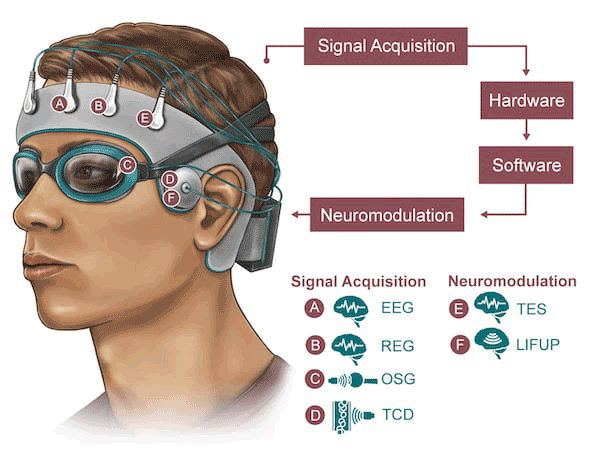"Sleeping Cap" Aims to Boost Soldier Performance, Resilience

A new piece of technology may soon give military scientists the ability to monitor the ways in which a sleeping Soldier's brain both repairs and prepares itself for the next day. The effort, a joint project between the U.S. Army Medical Research and Development Command's Military Operational Medicine Research Program and Rice University in Texas, is the latest in a slew of recent projects designed to create wearable technology designed to both monitor and improve Soldier performance.
Scientists at the Houston-based university are developing a "sleeping cap" to analyze the cleansing flow of fluid that drains the human brain of common metabolic waste during sleep. The noninvasive tool will be used to better understand how the brain disposes of that waste, and the ultimate impact on the wearer.
"The overall idea is that there's a connection between sleep and how your brain functions," says Paul Cherukuri, executive director of Rice University's Institute of Biosciences and Bioengineering. "In particular we're trying to find out if the glymphatic system – which was only recently discovered to exist in the brain – can be used in a way to clear out some of the chemicals that accumulate and make you less capable."
To hear Cherukuri tell it, the goal of the project is to ultimately replace the standard MRI machine – which is, as of now, the only noninvasive technology capable of viewing the brain in this manner – with a smaller, more portable alternative. Signals for the device will likely be acquired via orbital sonography and transcranial doppler (among other avenues) with modulation through targeted electrical simulations to the brain and, also, low-intensity focused ultrasound pulses. The 2.8 million dollar award for the effort was made through the Medical Technology Enterprise Consortium program, a key USAMRDC acquisition partner.
"The whole idea is to really enhance Soldier's performance downstream," says Cherukuri of the first-of-its-kind project. "If we can actually have restorative sleep and we know how to do that by affecting the brain directly, then I think we've now increased the ability for our Warfighters to a level that really gives us overmatch." "For us researchers, there's a routine disruption of sleep that we've unfortunately become comfortable with," says Cmdr. Christopher Steele, MOMRP director, noting that a high-quality sleep regimen is often difficult for Soldiers to maintain. "And so there's this chronic disruption that we know isn't good; and while young, healthy individuals can withstand a lot of that, good sleep is a core piece of brain health."
According to Steele, continued sleep disruption can lead to such conditions as cardiovascular disease, weight gain, hypertension, depression and anxiety; all of which can lead to a compromised and far less-resilient force. This effort is part of a larger focus on sleep-related issues (and the glymphatic system more specifically); an area which MOMRP has been funding aggressively for the better part of the past decade – and which dovetails with the Department of Defense's prioritization of wearable sensor technologies to monitor and improve Warfighter performance.
"Consistent sleep disruption is playing Russian Roulette with brain health," says Steele, noting the pressing need to turn a near-decade of dedicated sleep research into a tool that ultimately allows for measurement of brain activity in a variety of military-specific settings. "Sleep has to be considered the sixth sense when it comes to determining how an individual is performing over their career, and [also] over standard days and weeks under various stressors."
The stakes are so high that Cherukuri and the team at Rice have tapped physicians and neurosurgeons from the University of Texas Medical Center (also located in Houston) to be part of the development team, along with experts from both Baylor University and Houston Methodist Hospital as well. Given the current pace of this work, a prototype "sleeping cap" is scheduled to be available by the end of the year.
 An official website of the United States government
An official website of the United States government
 ) or https:// means you've safely connected to the .mil website. Share sensitive information only on official, secure websites.
) or https:// means you've safely connected to the .mil website. Share sensitive information only on official, secure websites.


